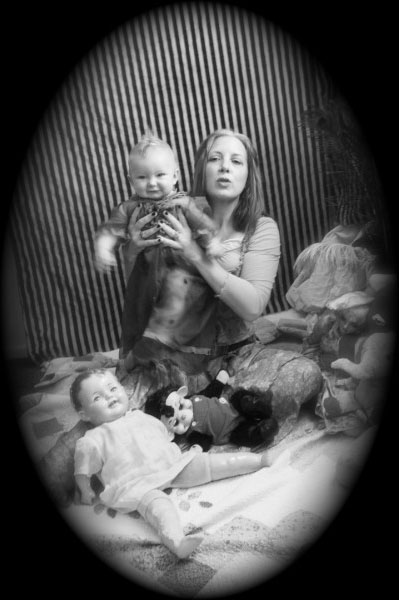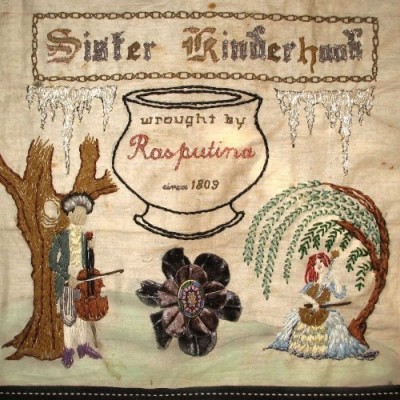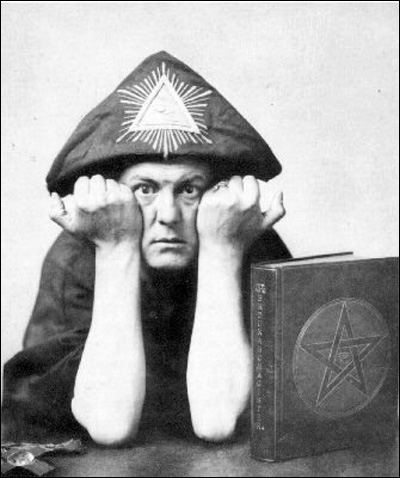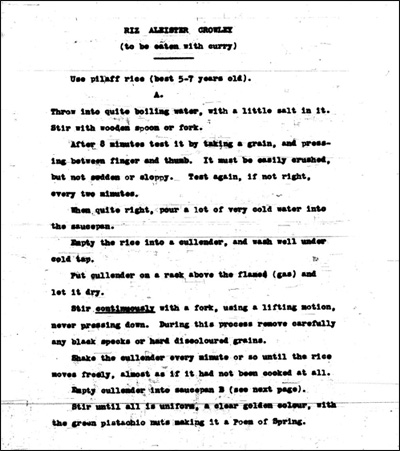Meanwhile, Somewhere In Finland
I know I’m supposed to actually write something but, really, nothing I could say would do this man justice.
I know I’m supposed to actually write something but, really, nothing I could say would do this man justice.

Via The Daily What, “the most moving lip dub of Queen and David Bowie’s ‘Under Pressure’ performed by a homeless man holding two Kermit puppets you will see today, guaranteed”:
Currently there’s no solid information listed about the talented puppeteer, just a general link to nonprofits. It’s unclear if he’s homeless, or a performer trying to raise awareness. Either way, I’d love to put some dollars in his hat.
(EDIT 5/9/10: More information on this clip has surfaced! Read all about it at NY magazine. The puppeteer’s name is Sky Soleil, and the director of the video is Brian Maris. Thanks for the tip, alumiere!)

Haven’t seen High School Confidential yet? It’s high time you did. (Double-decker pun intended, natch!) Directed by Jack Arnold, it’s a campy, unexpectedly sharp teensploitation romp that peaks with this adrenalizing scene:
The finger-snapping nihilist’s name was Phillipa Fallon, and that was her all-too-brief moment to shine.
Via the ever-entertaining CONELRAD webzine:
Approximately mid-way through the Albert Zugsmith exploitation film masterpiece High School Confidential (1958), an attractive, quasi-bohemian woman strides on stage at a coffee house and belts out a beat poem that provides a delightfully nihilistic snapshot of the Cold War—including references to the space race and atomic evacuation. The fact that she happens to be accompanied by Jackie Coogan (who plays a heroin kingpin in the film) on piano is, like, pure existential gravy. Predictably, the teens in the audience appear to be digging Coogan’s incongruous ragtime key work and disregarding the depressing content of the lyrics.
B-movie actor and writer Mel Welles (1924-2005) was the person most responsible for the hep jargon —including “High School Drag”— in Confidential. He was recruited by producer Zugsmith for help in this regard because, as Welles recalled for interviewer Tom Weaver in 1988, “I was an expert on grass in my day…”

Up until very recently, precious little was known about the sneering sex bomb “who so memorably portrays the hipsteress delivering Welles’ boptastic words.” But just last month, after years of sleuthing and compiling, CONELRAD began to parse out Fallon’s story on a separate site devoted to her life and times. Installments are still going up.

As many of you already know, it’s been a heartbreaking month in the US for the LGBTQIA community. The tragic story of 18-year old Rutgers student, Tyler Clementi, who jumped off the George Washington Bridge to his death, is the most high profile in a series of suicides in recent weeks of young people believed to have victims of anti-gay bullying and outright hate crimes. There was Billy Lucas, 15 years old, who hanged himself in a barn in Greensburg, Ind. Asher Brown, 13, who died of a self-inflicted gunshot wound to the head in Houston, TX. Seth Walsh in Tehachapi, CA, also 13, hanged himself from a tree in his backyard. Of course, those are only recent deaths we’ve heard about.
Writer, educator and activist Dan Savage wrote this for his Savage Love column late last month:
Nine out of 10 gay teenagers experience bullying and harassment at school, and gay teens are four times likelier to attempt suicide. Many LGBT kids who do kill themselves live in rural areas, exurbs, and suburban areas, places with no gay organizations or services for queer kids.
“My heart breaks for the pain and torment you went through, Billy Lucas,” a reader wrote after I posted about Billy Lucas to my blog. “I wish I could have told you that things get better.”
I had the same reaction: I wish I could have talked to this kid for five minutes. I wish I could have told Billy that it gets better. I wish I could have told him that, however bad things were, however isolated and alone he was, it gets better.
But gay adults aren’t allowed to talk to these kids. Schools and churches don’t bring us in to talk to teenagers who are being bullied. Many of these kids have homophobic parents who believe that they can prevent their gay children from growing up to be gay—or from ever coming out—by depriving them of information, resources, and positive role models.
Why are we waiting for permission to talk to these kids? We have the ability to talk directly to them right now. We don’t have to wait for permission to let them know that it gets better. We can reach these kids.
So here’s what you can do, GBVWS: Make a video. Tell them it gets better.
Since September 23rd, when Savage posted that initial video of himself and his husband Terry telling their stories and urging kids to hang in there, the “It Gets Better” video outreach project has been growing in leaps and bounds, gaining coverage, support and involvement from all over the place, including NPR, the ACLU, and hundreds of vloggers on YouTube. On Thursday, Ellen Degeneres aired her own “It Gets Better” segment and updated an End Bullying page on her website.
This wonderful project was launched specifically to help LGBTQI youth get through the hard times, but as many participants have noted, it’s a sentiment that can be applied more broadly to freaks, geeks, weirdos, outcasts and oddballs of all stripes. Hang in there, kittens. It really does get better. Meantime, there are tons of resources to tap into: The Trevor Project, Scarleteen, We Give a Damn, We Are The Youth, I’m From Driftwood, PFLAG, We’ve Got Your Back, and a wide assortment of National Crisis Hotlines, for starters. You are not alone.
To share your story of how you got through the rough shit and how life really, truly did get better, create your video, post it to YouTube, and send the URL to mail (at) savagelove.net. They’ll review it and post it to their FAVES section. Bless you, Dan Savage. You’re a mensch.

Craig Welch’s short, animated, silent film from 1996 is the story of a strange, reclusive man obsessed with the mechanics of winged flight who one night receives a mysterious visitor in his dark and empty abode. Always in Welch’s animation benefits from a distinct, Edward Gorey inspired look which complements the strange and macabre subject matter quite well. Welch’s protagonist, as well as being enamored of wings, is also someone who has created around him a sphere of perfect and utter control. There is no aspect of his existence that has not been meticulously planned, going so far as to force this exacting mastery over other living creatures that make their way into his world. Whether or not his mysterious guest meant him any ill will is left unspoken but regardless she proves to be his undoing. Indeed it may be that she is more cipher than anything — a metaphor for that which he hopes to attain through all his miniature, bio-mechanical tinkering. However you interpret it, it remains a short journey well worth taking.

For nearly two decades, Rasputina has been rocking out with some of the most unlikely instruments (cellos and the occasional banjo or harpsichord) and in some of the most fanciful and restrictive attire (tightly laced corsets and hoopskirts). They have paved the way for experimental cellists to break away from the traditional classical strictures and move toward a much wider audience. Melora Creager, the mastermind and directress behind the formerly ladies-only Traveling Cello Society, has long held a passion for Victoriana and is an avid huntress through the more peculiar annals of history.

Her wonderful lyrics are often about marvelously obscure subjects such as Snail-Fever, meltable aliens, and the egg-races performed by Easter Islanders. Rasputina’s seventh full-length album, Sister Kinderhook, is stuffed with melancholy gems about the perils of ocean-faring and little girls raised in birdcages. The tone and sound of the record harkens back to early days of Thanks for the Ether, the band’s first groundbreaking album. I had the opportunity to catch up with Melora and company over migas and coffee in Austin. Rasputina’s traveling retinue included not only some delightful new band members (Daniel DeJesus and Melissa Bell), as well as Dawn Miceli, whose documentary about touring with the band, called “Under the Corset” came out this summer. The star of the show, however, was no doubt Melora’s adorable new baby, Ivy – who appears to be a human incarnation of a Kewpie doll. Doll artist and photographer Christy Kane made some lovely portraits of mother and daughter, which we are very pleased to include with this interview.
CH: Over the past 18 years, Rasputina has evolved musically, but has also remained totally true to a beautifully anachronistic aesthetic, and to an experimental sound that has engendered a very devoted fan-base. As directress and songwriter, you never seem to waver from what inspires you. Has it been a battle to lead such an uncompromisingly iconoclastic band through the wilds of an industry which is so increasingly concerned with accessibility?
MC: I’ve always had faith – that to be true to my ideas & taste would help me win in the end. Even if it’s a victory in honor only. But win & victory are battle terms, it’s true. A band is like sports. I’ve been at this so long, that I’ve seen many trends come and go. Sometimes Rasputina is lumped in with them, but these trends always pass away. I keep faith that my best efforts are beyond fashion. Rasputina started on a major label, has grown steadily smaller, and has gotten more and more fun as it shrinks. I was raised in the industry to try to make hits, to try to get on the radio. It took a few years to get that out of the back of my mind. Maybe 5 years ago, I started to be free of it. It’s funny though, because think of all the weird songs I’ve made- you’d never know I was attempting hits!

CH: Much of Rasputina’s inspiration appears to come from the hardworking and meticulous ladies of yore, who stitched and slaved away to create lasting things of beauty. You make and design the majority of your album covers and merchandise by hand, including the embroidery on the cover for your newest album, Sister Kinderhook. With the collapse of the traditional music industry as we know it, have you noticed more musicians getting motivated to be more DIY with their careers? What are your thoughts on the craft renaissance and the renewed appreciation for fancy handwork?
MC: With other musicians I talk to, of different levels of success, I don’t hear about labels anymore. Do they exist beyond Beyoncé? I really stay out of the whole music industry. I make my things as hand-made as possible. I use a cd manufacturer that’s here in my little town. I was looking through the craft magazine section at a book-store, and was shocked at how much material there was and how common advanced techniques are. That is a great thing that lots of people want to spend their time that way. I have heard that young people shun Facebook and prefer quilting & etc. Good.



Aleister Crowley, prescription known to many as “The Great Beast” and thought perhaps “The Wickedest Man in the World” was an English Occultist, ampoule mystic, ceremonial Magician… and amateur foodie?
See below for Riz Aleister Crowley, a delectable rice dish. Redolent with aromatic herbs and spices, almonds and green pistachios (rendering it a “Poem of Spring”, Crowley raves), it is meant to be eaten with a lovely curry. This carnal knowledge comes to us courtesy of Professor Jack, who recently conducted some sleuthing in the Crowley Archives at Bird Library, Syracuse University, and generously shared the fruits of his efforts. Should you wish to attempt this recipe in your own kitchen, be forewarned – volumes and weights are virtually non-existent here; Prof. Jack notes that Crowley appears to have been “… less fond of precise measurements than he was of Sex Magicks and defiling nice carpets.”


